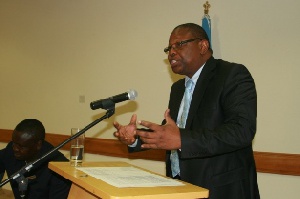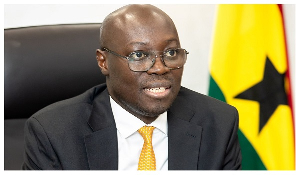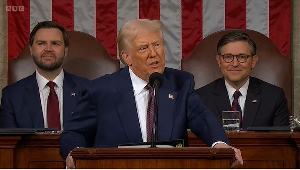The West Africa Network for Peace building (WANEP) has commended recent adoption by ECOWAS Ministers of Education to introduce peace studies in the school curriculum across West Africa.
According to them, if well pursued, the subject “will impart new ways of thinking and new way of viewing conflict thereby leading to building new structures and cultural practices in the society that deepens peaceful coexistence.”
This was contained in a statement issued to mark the 2013 World Day of Peace under the theme: “Education for Peace”.
Below is the full statement from WANEP:
The West Africa Network for Peacebuilding, WANEP, joins millions around the world to celebrate the 2013 World Day of Peace aptly tagged “Education for Peace.” In 1981, the United Nations General Assembly unanimously voted to set aside a day to commemorate and strengthen the ideals of peace both within and among all nations and peoples of the world. This year’s theme marks a deliberate attempt to raise the political profile of education and highlights education as an important path towards a more peaceful world. It draws attention to the need for sustained advocacy efforts in generating sufficient funding towards strengthening the global movement to achieve quality education.
As the world marks the 2013 Peace Day today, WANEP notes with grave concern that the major civil wars which has bedevilled the region over the last two decades has exposed children and young people to a culture of violence with deep implications for the stability of the region. Children and young people in West Africa constitute a significant percentage of actors or victims directly affected by violent conflicts as was witnessed in Sierra Leone and Liberia where an estimated 40,000 child soldiers were reportedly recruited as child soldiers. Participation of children in violent conflicts affects their behavior, disrupts social cohesion and erodes societal and family values with serious implications for future stability of the region.
WANEP recognizes that a key step towards finding lasting solutions to conflicts in the region is to empower young people (boys and girls) to become agents of change and equip them with skills to be able to determine their own fate and make meaningful contributions in their communities. In this regard, we wish to commend on-going efforts of government, inter-governmental and other well meaning organizations in the promotion of peace and stability in the region. Practical demonstrations of these efforts include the recent adoption of the report of the ECOWAS Ministers of Education that will ensure the introduction of peace studies in the school curriculum in West Africa and the ECOWAS commitment to youth empowerment as a step in disouraging behaviors that engender violence.
In leveraging on these commitments, WANEP recently launched a guide for the implementation of peace education in formal schools in West Africa to provide a practical framework for the development of a comprehensive programme of peace education. A culture of non-violence is imperative and sustainable peace in the sub-region depends on individuals possessing the knowledge and skills to use nonviolent means to deal with conflicts and also having the space and opportunity to promote the use of these non-violent conflict resolution skills.
This year’s theme lends further credence to the importance of Peace Education which, if well pursued, will impart new ways of thinking and new way of viewing conflict thereby leading to building new structures and cultural practices in the society that deepens peaceful coexistence. Peace education provides essential life skills that will help foster values that propote a culture of tolerance capable of creating more peaceable schools and societies thereby laying the ground for achieving gains in education that will impact greatly to the attainment of the Millennium Development Goals as well as the post-2015 agenda.
General News of Saturday, 21 September 2013
Source: TV3 News

















